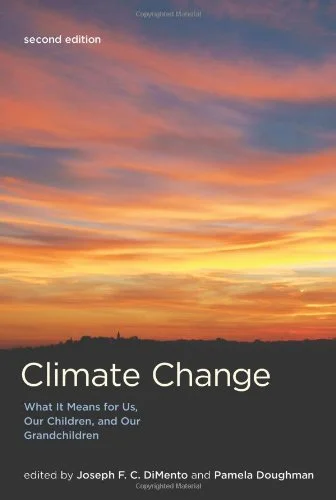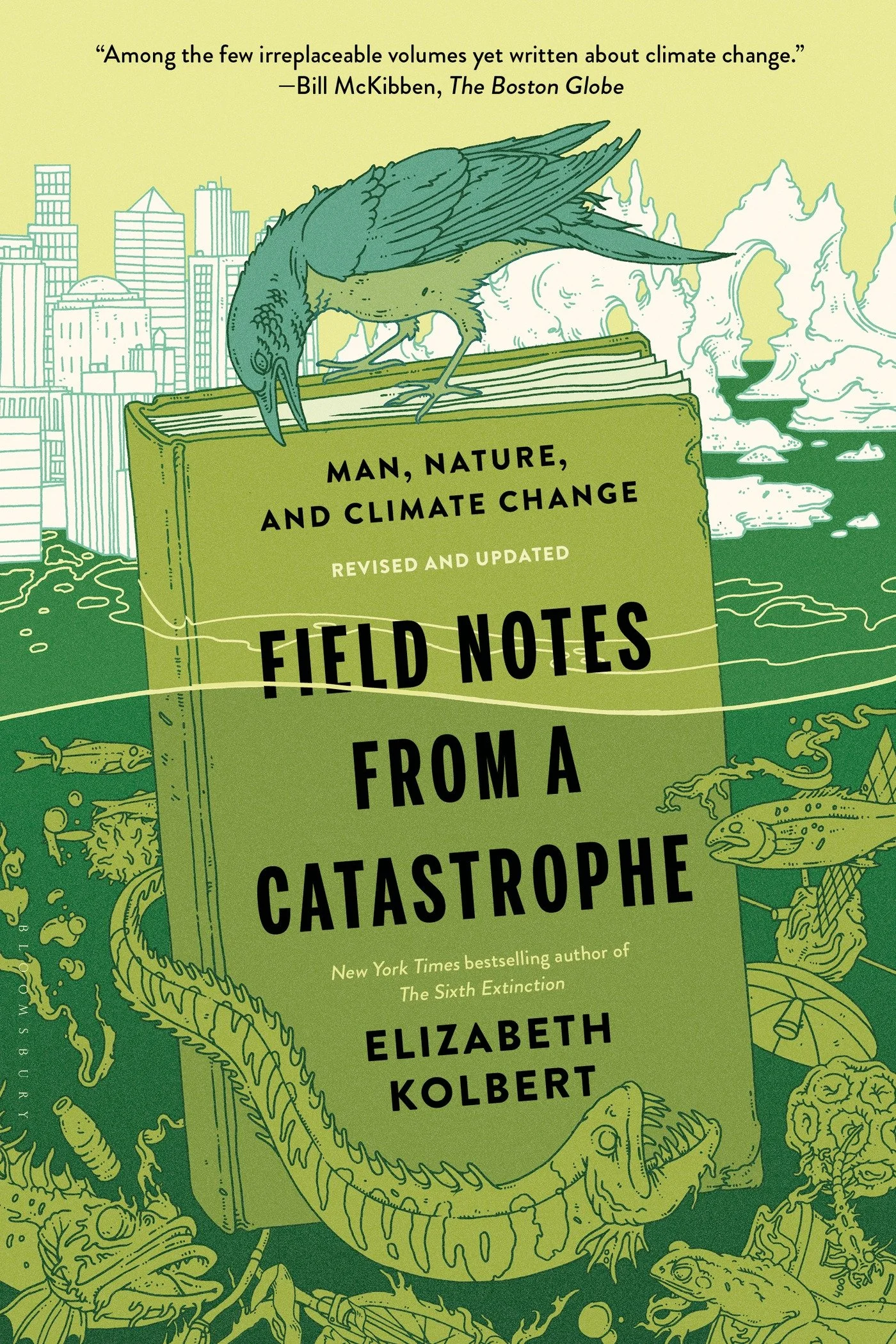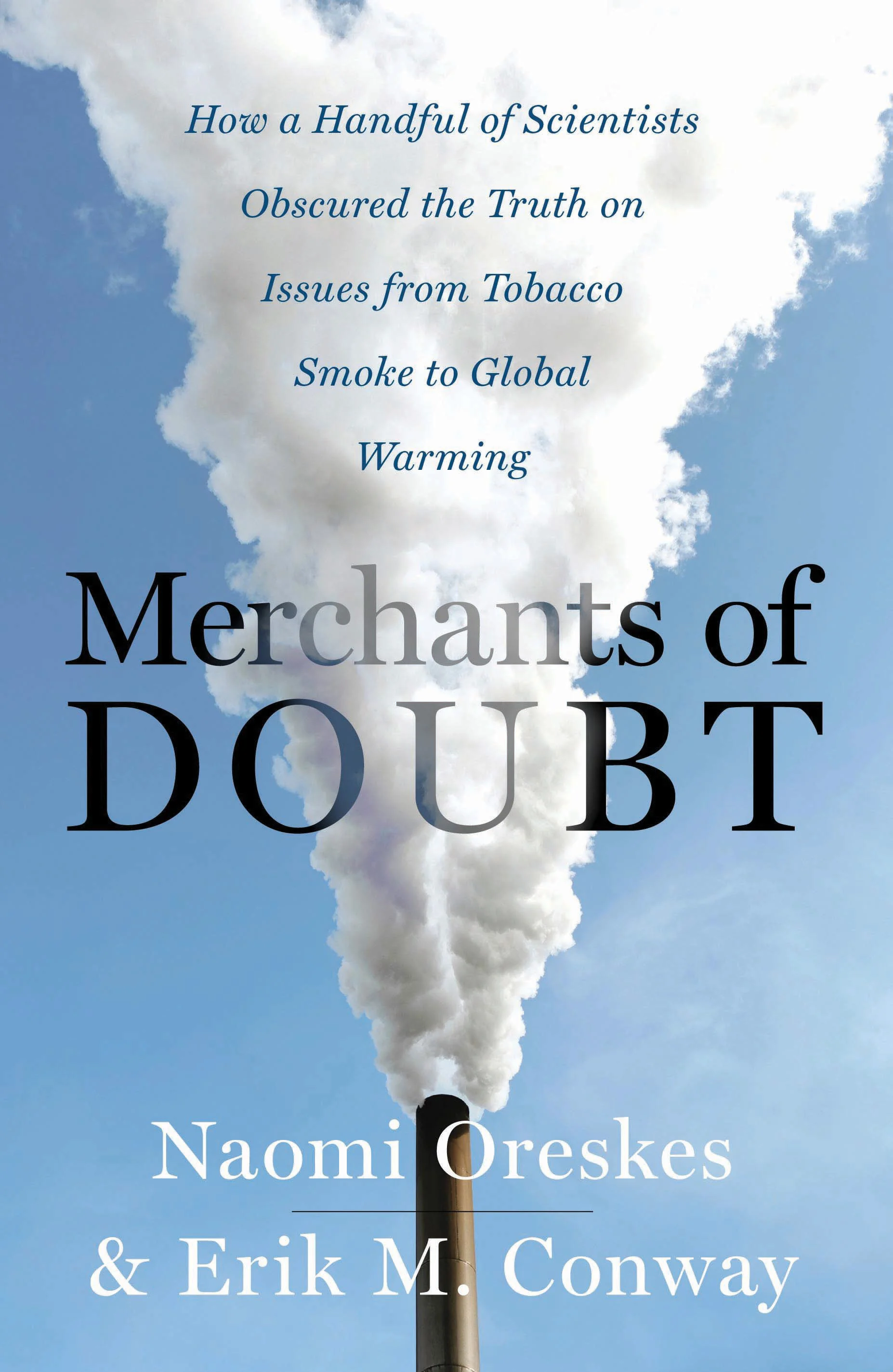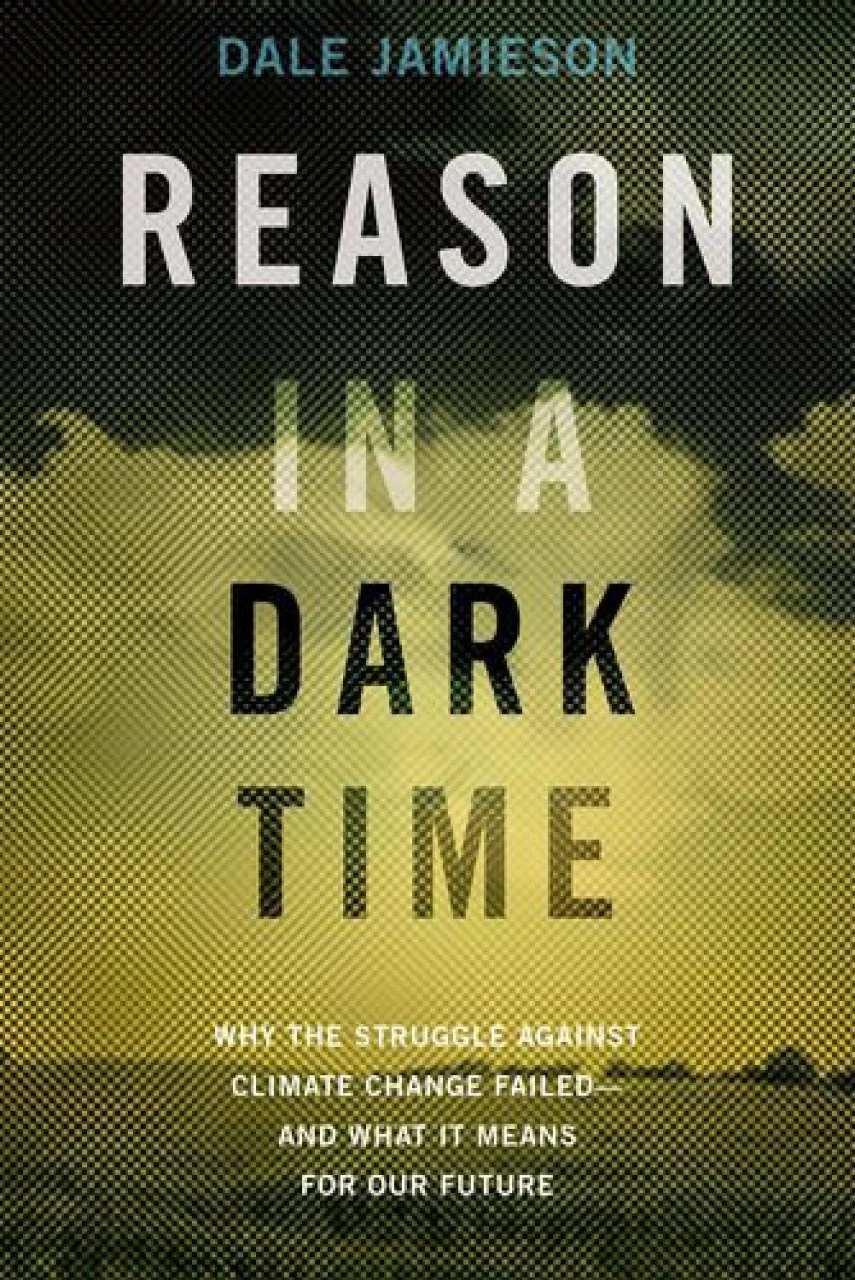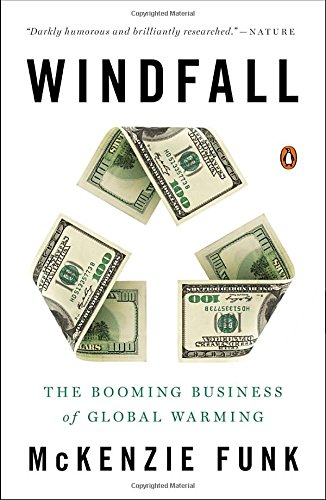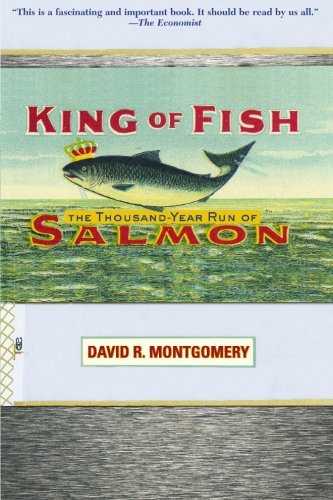DESCRIPTION OF WHY WE ADMIRE THESE RESOURCES AS PLACES TO LEARN ABOUT CLIMATE CHANGE
BOOKS
Climate Change: What It Means for Us, Our Children, and Our Grandchildren by Joseph C. DiMento & Pamela Doughman - Climate Change is a broad and fairly comprehensive place to start research into climate change issues. Special focus should be paid to chapter two, a primer on the science of climate change, and chapter six which addresses how climate change is communicated and represented in the media. It is also interesting how the book addresses the psychology of climate change and public perception.
Field Notes from a Catastrophe: Man, Nature and Climate Change by Elizabeth Colbert - This book attempts to portray the global effects of climate change by using examples from various locations to communicate not only specific effects of climate change to particular regions, but also the universal common experience of change. Kolbert crafts her book by weaving interviews with leading scientists, scientific data, and her personal experience to create a more accessible and engaging storyline. She also deconstructs political rhetoric and the role of the U.S. government in ignoring and discrediting climate change to the American public.
Merchants of Doubt by Naomi Oreskes -Merchants of Doubt provides a useful insight into the issue of climate change through the lens of science literacy. By comparing climate change with other heavily debated topics in the past, we can examine how consensus can be difficult to achieve within the scientific community. Often times, scientific research can only draw strong correlations leaving a small margin for error. By exploiting this margin, corporations can sway public opinion to thinking there is less of a consensus then there may appear.
Reason in a Dark Time by Dale Jamieson - Need Description from Deb
Windfall: The Booming Business of Global Warming by McKenzie Funk - This book views the consequences of climate change in dollar figures. In the warmer world of the future there will be winners and losers; this book does an interesting job of covering the people who are actively trying to secure their position on top in the resource shifts brought about by melting glaciers and water redistribution. Finding facts and stories that pertain to your audience is key in fostering involvement.
King of Fish by David R. Montgomery - Salmon serve as an important indicator species and represent a noticeable connection between Oregon & Alaska. King of Fish discusses the history, biology, and future of salmon. In Europe, the Eastern US, and now the Pacific Northwest, the decline of salmon populations have shared several factors. The patterns include an abuse of technological advancement in conjunction with slow policy making and a failure to recognize and address the regression. Even with the presence of laws protecting salmon populations, lax implementation prevented change.
WEBSITES
Science & Memory - A climate change reporting project with stories about environmental issues from Oregon to Alaska run by students and faculty at the University of Oregon's School of Journalism and Communication.
Dot Earth - The New York Time's Andrew C. Revkin writes about climate change and sustainability in ways that are readable, accessible, smart, and a bridge to interdisciplinary.
The Climate Reality Project - Summary Needed
National Climate Assessment - Summary Needed
Intergovernmental Panel on Climate Change - Here is a summary of the 2014 Assessment Report.
ARTICLES + PAPERS
Save Money, Save Salmon, Save Mike: Free the Snake By Steve Hawley // The Cleanest Line
The Point of No Return: Climate Change Nightmares Are Already Here by Eric Holthaus // Rolling Stone
The Mother of All Briefs by Ernie Schenck // Communication Arts
